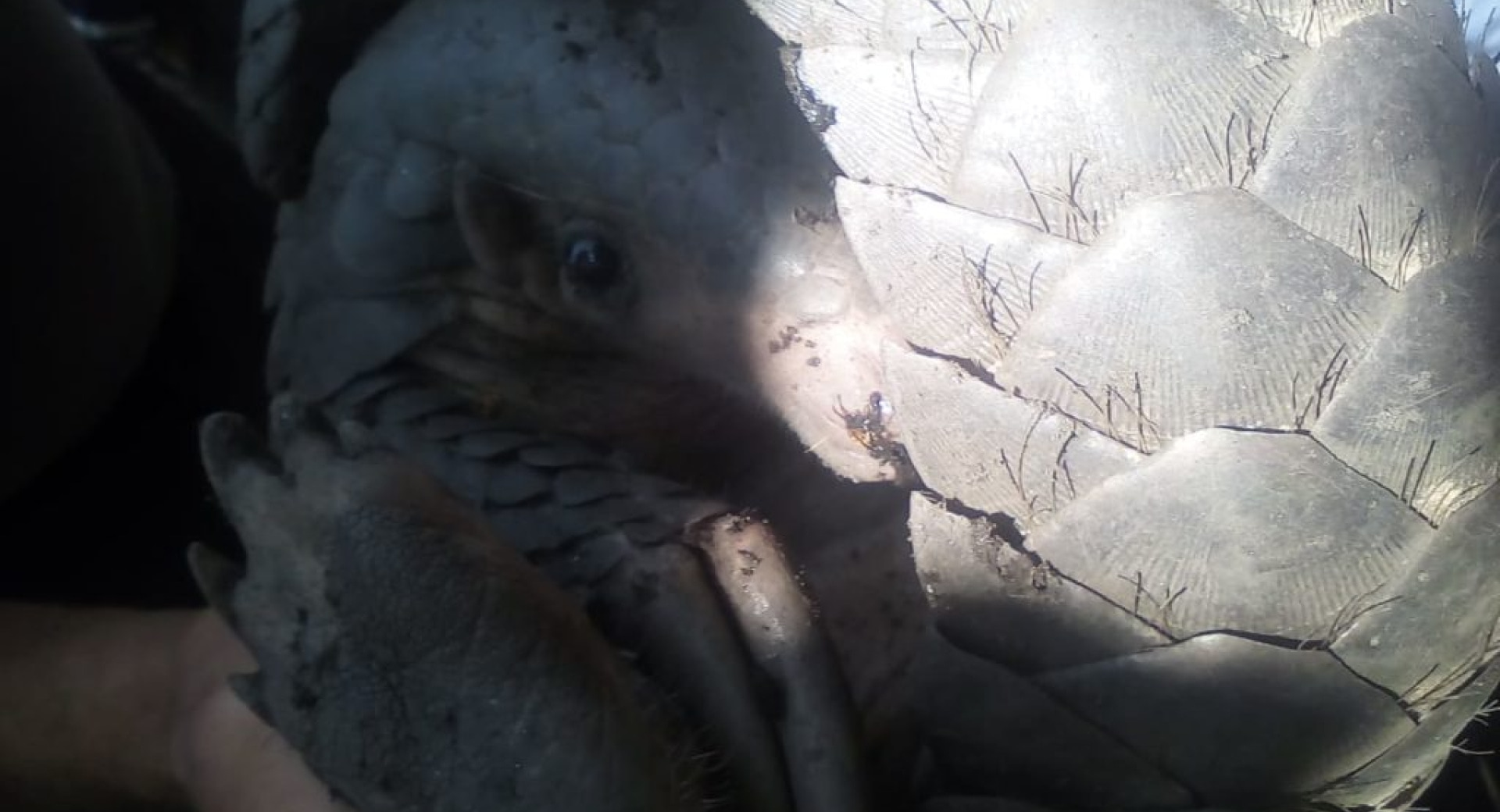
NEVER BEFORE HAS ILLEGAL WILDLIFE TRADE BEEN SUCH A THREAT TO THE FUTURE OF THE ENDANGERED SPECIES OF OUR PLANET.
A colossal ivory market continues to grow and fuel the rapid decline of elephants and rhinos (three rhino subspecies have been declared extinct since 2011). Meanwhile, the last wild tigers—estimates are roughly 3,800 remaining—are relentlessly targeted for their skin, parts, and bones.
These are just some of the popular megafauna. Smaller, less-known species like pangolins and red pandas have also been experiencing unprecedented levels of illicit trade.
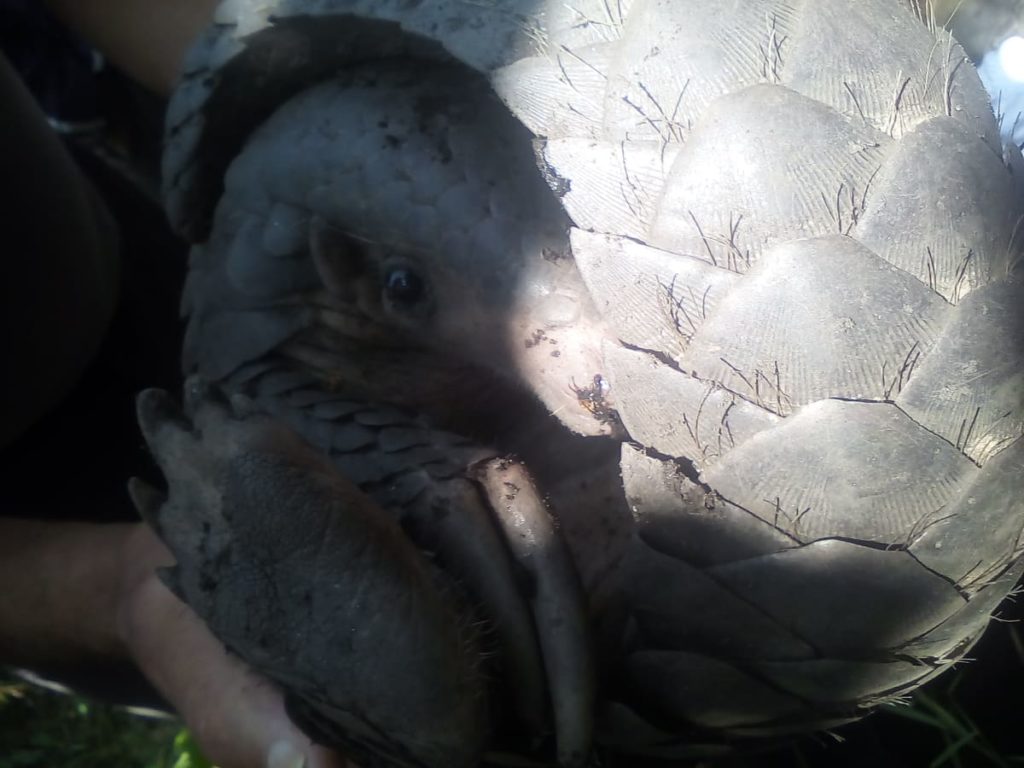 Pangolin rescued by RPN in Eastern Nepal.
Pangolin rescued by RPN in Eastern Nepal.

Camera trap photo by Sonam Lama/RPN and Rotterdam Zoo.
Pangolins have been identified as the most trafficked mammal in the world with almost 1 million pangolins trafficked in the past 10 years. While trafficking estimates for red panda is not quite as staggering, poaching of the endangered species is on the rise and harming populations that are already vulnerable due to habitat loss.
The demand behind trafficked red pandas is still not entirely clear. While several reasons have emerged, such as the pelts being used as hats in ceremonies in China, a significant reason is the growing popularity of red pandas among illicit pet trade. This includes red pandas being illegally purchased as pets, or used as an animal attraction at private resorts.
The Wildlife Crime Pillar under the Central Investigation Bureau (CIB) of Nepal Police reports that between 2008 and 2019 there were 102 seizures of red panda hides— six confiscated by authorities in Western Nepal and one in Kathmandu in 2019—and 170 people arrested in the country for trafficking. “Red pandas are threatened by poachers though the market and demand for red panda products is unknown in Nepal and China,” said an official with CIB.
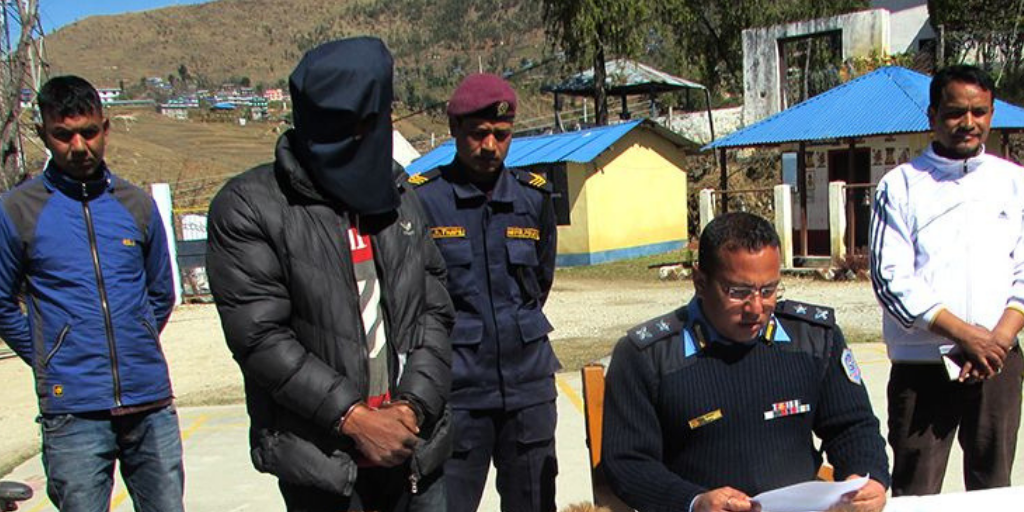 Man arrested in Rukum District for possession of red panda hides.
Man arrested in Rukum District for possession of red panda hides.
The Wildlife Crime Control Bureau of Nepal states that 90% of the nation's cases related to wildlife crime goes unreported.
As a response, on September 15th 2018, Red Panda Network (RPN) celebrated International Red Panda Day (IRPD) with the launch of our largest and most comprehensive effort to stop the illegal red panda trade. Our mission is to reduce the supply and demand by:
- Exposing the illegal red panda supply chain.
- Educating the public on why red pandas must remain alive and wild and reduce the illegal trade demand.
Thanks to the support of over 500 donors—including a $10,000 gift from matching challenge partner, Medway Charitable Trust—RPN has successfully implemented awareness and anti-poaching activities in Eastern and Western Nepal.
We kicked off this campaign on September 11th in Western Nepal with a two-day Wildlife Crime Control workshop in Jajarkot district, Western Nepal. Fifty people participated in the workshop in Jajarkot district including personnel from National Intelligence Department, Armed Police Force, Nepal Police, Divisional Forest Offices, District Administration Office, Community Forest User Groups, RPN Forest Guardians, and local media.
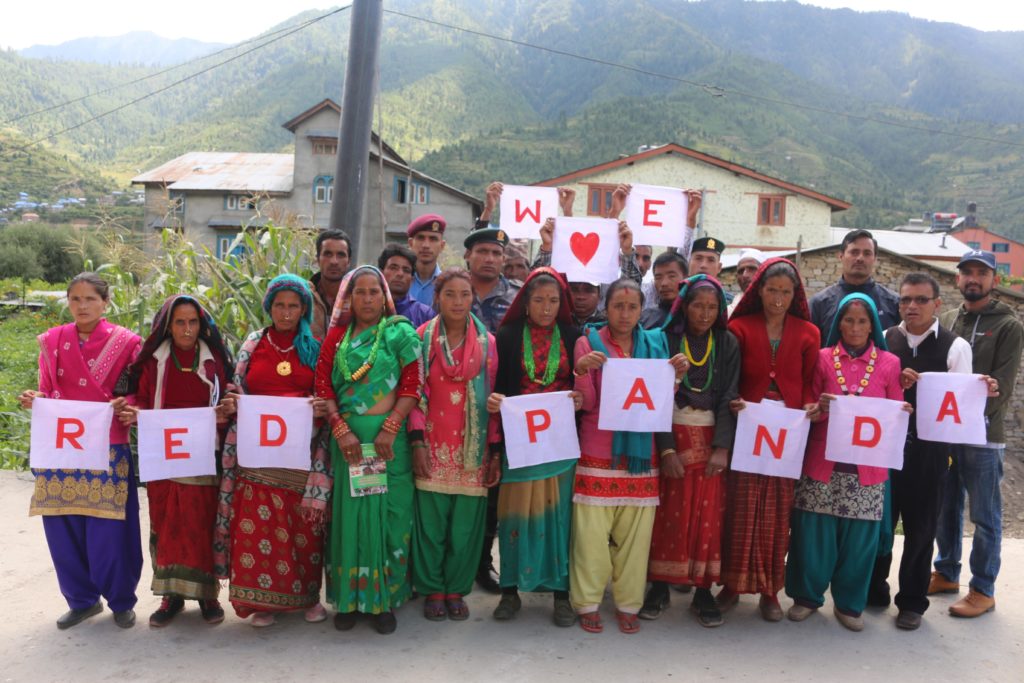 Workshop participants in Jajarkot district.
Workshop participants in Jajarkot district.
Participants learned about red pandas and their importance, as well as CITES (Convention on International Trade in Endangered Species of Wild Fauna and Flora) and how to implement national laws. They were provided all of the available information on the illegal red panda trade industry in Nepal including major trafficking routes, supply chain and demand sources. The same event was also organized in neighboring Jumla district on IRPD.
RPN held interactive workshops on the role of media in combating wildlife crime in Western Nepal—Jumla district in February, Eastern and Western Rukum in March and Ilam, Eastern Nepal in June 2019. Ten local journalists in Western Nepal and 22 in Eastern Nepal from regional and national media including BBC Nepali Service, Nepal Television, Kantipur and National News Agency, as well as Assistant Divisional Forest Officer and local security personnel, were in attendance. Participants shared their experiences and challenges in, and discussed solutions for, reporting wildlife crime.
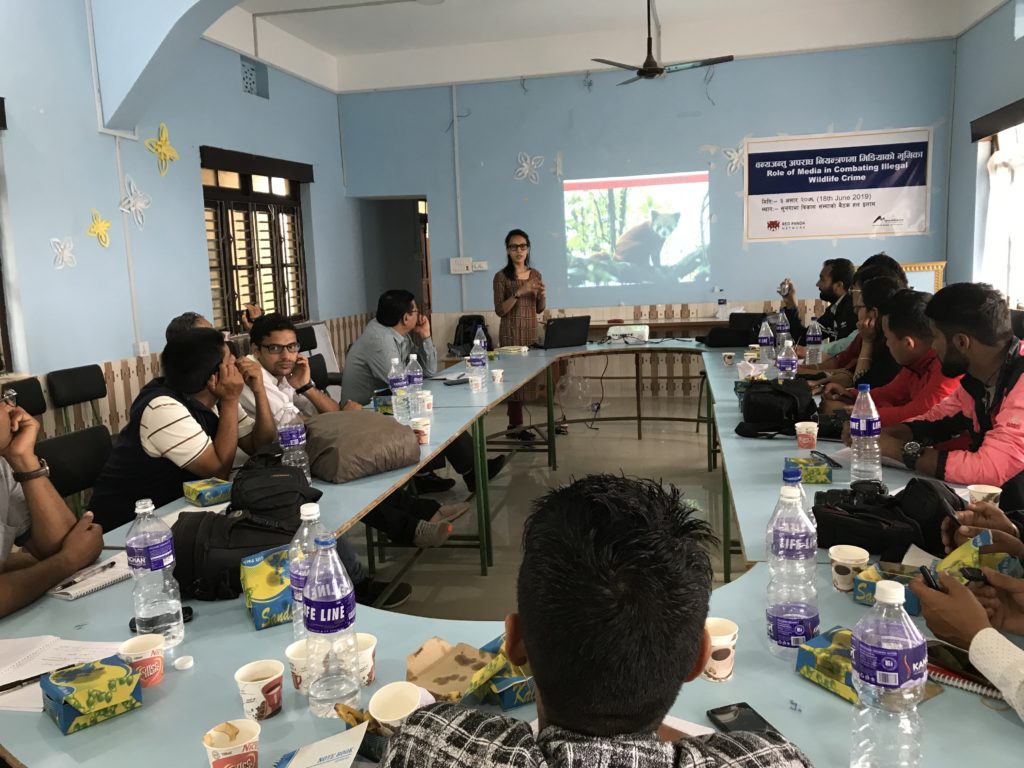 Workshop for journalists and media personnel in Ilam, Eastern Nepal.
Workshop for journalists and media personnel in Ilam, Eastern Nepal.
In April 2019, RPN hired two people from Jajarkot district Western Nepal—Krishna Basnet and Nar Bahadur Basnet—as Forest Guardians (FGs) and celebrated reaching 100 members on our national team! FGs are a vital part of our community-based conservation efforts including the anti-poaching network.
There are now three anti-poaching networks in the Panchthar-Ilam-Taplejung (PIT) Corridor of Eastern Nepal; one in each district. The network in Ilam will continue to patrol red panda habitat in Eastern Nepal, remove traps and snares, educate locals on the importance of red panda conservation, and report poaching activity to enforcement agencies. The other two anti-poaching networks will be trained in anti-poaching monitoring and community awareness activities by the end of this year. Our priorities for the rest of the year will also include:

Wild red panda in Eastern Nepal. Photo: Sonam Lama/RPN
- Training anti-poaching networks in monitoring illegal activities in their forests and conducting educational workshops.
- Continuing to organize interaction workshops in Eastern and Western Nepal for journalists and media personnel in investigative reporting on illegal wildlife trade.
- Organizing awareness workshops on illegal wildlife trade for security personnel in Eastern Nepal.
